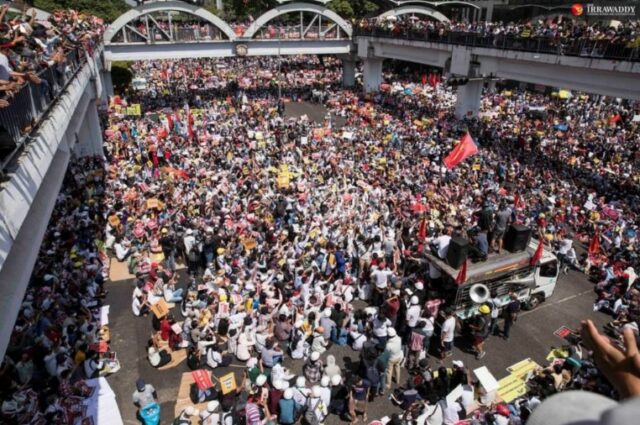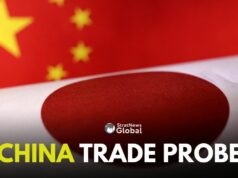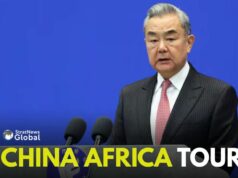Challenging the regime’s legitimacy at home and abroad, Myanmar’s shadow National Unity Government (NUG) foreign minister Daw Zin Mar Aung, 45, has engaged with foreign governments and parliaments, international aid agencies and Myanmar’s many armed groups.
However, the elected lawmaker from the ousted National League for Democracy and winner of the 2012 International Women of Courage Award said international assistance is largely limited to moral support.
She exclusively tells The Irrawaddy about the importance of international support, including funding and arms, Myanmar’s friends and foes and how it receives different treatment from Ukraine.
It has been more than a year since the revolution against military rule was launched. We heard the revolution has received no assistance from foreign countries. Why is that?
It is mainly because the international community regards the crisis as a domestic issue if we compare it with the Ukraine war. It is widely believed that countries should not interfere in domestic affairs.
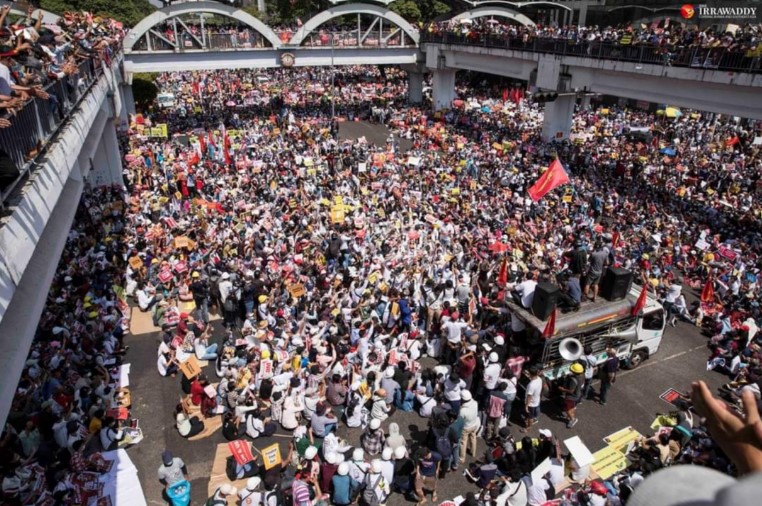
In diplomatic relations, they engage not with governments but with states. They recognize Myanmar as a sovereign state. In their view, what is happening between the SAC (State Administration Council), the NUG and the people is a domestic affair. They morally support us. Countries that support democracy support us diplomatically but that becomes an obstacle to providing practical support.
The junta has shown its cruelty but does the international community think its atrocities are not serious enough to justify action?
Some countries have an abiding interest in Myanmar. That’s why there have been prosecutions for genocide against the Rohingya.
Governments, especially European Union member states and the U.S., are aware of that issue over the last five years.
They have stressed the central role of ASEAN, considering the strategic importance of Myanmar. China, Japan, the EU and the U.S. have stressed ASEAN’s centrality. They are seeking ways to avoid conflict between bigger powers because of Myanmar.
Many countries, including the U.S., endorse ASEAN’s centrality. But ASEAN still cannot act. And it is mostly on good terms with the regime. The U.S. backs ASEAN though it is aware it won’t be successful. What could Washington do?
While the U.S. considers ASEAN as an initial step, we cannot reject it completely. But the U.S. should think about a Plan B in case that approach does not work. We have always called for an innovative approach. The international community should not use 20th-century definitions of sovereignty and diplomatic relations to handle Myanmar in a 21st-century context.
It can no longer use old methods to approach Myanmar. It has been proven in previous decades that the old approaches were unsuccessful. And ASEAN alone cannot handle Myanmar’s crises.
ASEAN and U.S. envoys should work together. As the EU has appointed a new envoy, we have suggested that these envoys should collaborate and take a more innovative approach.
What international assistance would you like to have for the resistance movement?
We have worked to disrupt the cash flow to the regime to prevent it from procuring weapons with some success. The U.S., UK and EU have cooperated in imposing targeted economic sanctions against military-linked companies and cronies.
We are working to get more data from regional countries. We have asked financial institutions in Singapore to stop cash flow to the regime and not to allow it to use its ports to import aviation fuel.
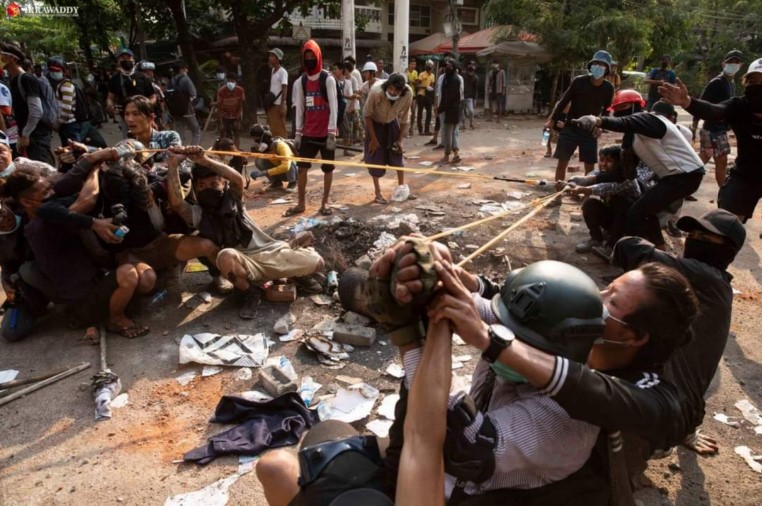
We have to continue to push regional countries to collaborate with us. It is unlikely we will receive arms from them. We will not receive assistance like Ukraine. For now, we can only expect diplomatic recognition and diplomatic support.
Do you want weapons?
Long before the war in Ukraine, we were asking for support to ease our people’s suffering. If we could get a small proportion of weapons going to Ukraine, it would help overthrow the dictatorship.
But people will suffer more if we just stand by. We have told other countries to send weapons if they don’t want to see thousands being killed and their homes destroyed.
We say problems will intensify if they don’t support us. We engage continuously with the international community and ask what Myanmar’s people need during the revolution. Every day we are thinking about how we can bypass restrictions and meet our monthly requirements [for arms and ammunition].
The U.S. says it stands with Myanmar’s people but its actions are limited to sanctions. It imposed sanctions against previous military regimes. Sanctions do not help the revolution. How has the revolution been harmed by a lack of international support?
We are in dire need [of support]. We are ready to accept no-strings-attached support from any country. Countries have to consider other actors, like big powers and how to keep the global balance.
We pressure them using any means. We will work on our own if we cannot receive international support. People have been fighting for more than a year. We didn’t think that people could endure this much. We will continue to endure with great resilience and opportunities will come to us if we keep doing our job.
The NUG still needs official recognition to attract financial support. How can the NUG achieve this?
The NUG was formed last April. We are holding an internal review to strengthen various areas, from media engagement to public relations.
We are as eager as the people to complete this revolution. Diplomacy plays an important role. We will try to increase virtual and in-person engagement.
Some U.S. analysts say public relations [PR] should play an important role for the NUG to gain international assistance. What is the NUG doing for PR?
We accept that we have a weakness in PR. We are reviewing how we can engage better with the media and focus groups. Some messages which were supposed to be kept internal were made public and other public statements were not released. So we are trying to improve our engagement.
How about the US $1 billion in frozen assets in the U.S.? Can the NUG get that money?
We have formed a committee to get back that money. It is headed by the finance minister with officials from the foreign ministry and other departments. The committee watches U.S. policy and sees if it can secure the money. We don’t want to waste energy on things that we can’t achieve. It depends on how much the U.S. recognizes our capacity. The practical question is about how we manage our finances. We have released a budget statement as part of our measures to recede the $1 billion.
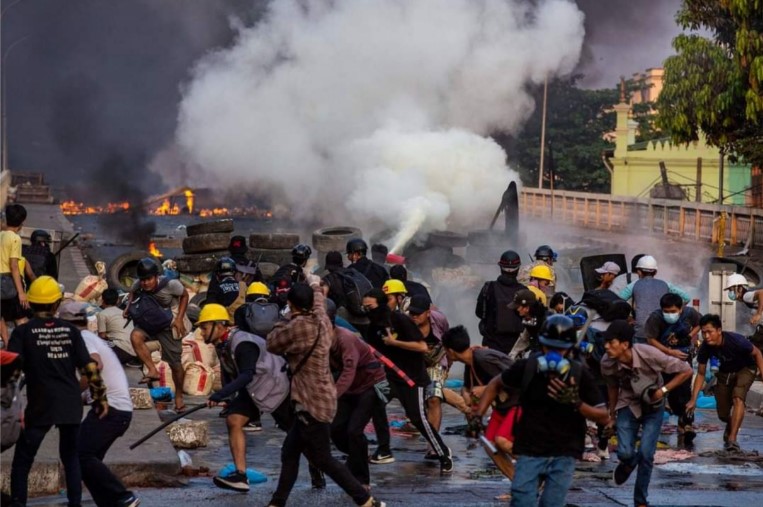
Would the NUG get the money if it is recognized as the legitimate government?
There has been some progress from the U.S. The National Defense Authorization Act includes provisions to help NUG gain legitimacy. We are making our case based on that.
Does the NUG have a defense budget target?
We can’t disclose details because the regime will disrupt us. As a revolutionary government, we have to give the lion’s share of the budget to defense.
We are embarrassed and sorry to ask for donations from the people. But we have to keep asking for donations, especially from expats.
There are still wealthy people inside Myanmar. If they join us, it will help funds flow. We continue to mobilize funds by selling bonds and working to get the $1 billion back.
The more funds we have, if we can manage it effectively, the sooner the revolution will succeed and the sooner the suffering will end. We are trying our best.
What other outgoings does the NUG have?
Besides armaments, we are funding a defectors’ program. Financial aid will also pay for humanitarian assistance and help put the country on the path to federalism.
Australia has offered asylum to striking junta personnel. What else is the NUG doing to offer incentives to boost the revolution?
If someone defects, we try to provide security for them and their family, and we pay for transport and other costs. The burden becomes heavier as time passes.
Our budget is very limited. We have asked other countries to offer asylum to offer an incentive to abandon the armed forces and reduce the burden on us.
Our ministry meets representatives from foreign countries to discuss opportunities for defectors to seek asylum. Some countries are granting asylum although they have not announced it publicly.
But because of the war in Ukraine, many EU countries are accepting hundreds of thousands of Ukrainian refugees. They accept refugees based on a quota system and Myanmar’s share might be reduced because of Ukraine. But fortunately, Australia accepts junta defectors.
Countries have limits for refugees. They allow in a number of refugees per year. So if [junta personnel] defect early, they will have a better chance of gaining asylum. European countries, in particular, have discussed offering asylum.
Some countries, including the U.S., might review the defectors because they served in the military. Other nations do not have these restrictions and they will accept defectors like other refugees.
Which countries are not helping the revolution?
I told the Indian media in an interview that some neighboring countries engage with us but they also deal with the regime. We can understand them.
Our revolution will win. I tell them to cooperate with us and when we win, we will remember who stood with us in our struggle. This is true for individuals.
We record who our friends are and who are sitting on the fence, which will shape our future relations with them.
Does that include India?
Some countries want to help but lack the strength. Others have the strength but they are too focused on their interests and fail to act decisively. If they want to protect their interests, I urged them to stand by us.
I guarantee that their interests will not suffer. The NUG has the public’s support. The day when people don’t like us will be the day we fail. Our neighbors should listen to our people, and cooperate and support the revolution.
That’s why I was critical during the Indian interview. India is the biggest democracy in the world. It should more actively and decisively back democracy in Myanmar. It is a major regional power. I was critical because India should boldly shoulder its role and take action.
What about China?
China is important. Its political situation differs from that of India. I say democracies should act like real democracies. To be pragmatic, we have to engage diplomatically with China. Both India and China are important to us. We maintain our engagement with China. We are taking a pragmatic approach.
What do you expect from China?
At least China should not legitimize the junta and its leaders and say it is a legitimate government. We have repeatedly said that and asked China not to ignore the 2020 election results. We understand China does not oppose that.
What is the relationship like between the NUG and China?
It is just a normal communication channel. We haven’t had a meeting with Chinese representatives. China is cautious and wants to maintain links with the junta. There has been an exchange of information between us and China.
Cambodia has increased its ties with the junta and Japanese representatives have attended the regime’s events. Do these countries support the NUG?
This is a difference between Myanmar and Ukraine. EU countries stand collectively by Ukraine. This gives Ukraine many advantages. But it is different in our region. There are dictatorial states and others that favor democracy.
But they are also divided. Even democracies like Japan and South Korea are different. South Korea has been more decisive while Japan focuses on negotiations.
Japan is concerned China might fill a vacuum if it refuses to engage with the regime. It is a balancing act.
Asian countries accept the principle [of rejecting the regime]. But in reality, they do not take a tough stance and maintain ties with both the regime and us. We have to monitor their moves and engage with them.
What is your message to regional countries?
It is simple. When our revolution wins, it will contribute to long-term stability and development in the region. If our revolution fails, crises will keep happening in Myanmar and it will continue to be a troublemaker in the region.
But if the people win, Myanmar will contribute to regional stability and development as a fully established democracy. Other countries should boldly stand by us and support our revolution.
You said the international community is applying 20th-century policies to Myanmar. If this continues, can the revolution succeed?
There won’t be results if these policies continue. It is not only our loss but a loss for democracies across the world.
How long will the revolution take if we have to fight alone without any weapons assistance?
It will take another year but we are determined. We have lived under a dictatorship and understand that we don’t want to live under military rule for another generation.
This revolution is crucial for us and the younger generation. We strive to make sure younger generations do not suffer what we suffered. The anti-regime forces will not give up.
This revolution will continue, it may take longer and people will suffer more. Myanmar might become a failed state. We alone are not responsible to prevent Myanmar becoming a failed state. Other countries, especially large powers, have responsibility too.
(By arrangement with ‘The Irrawaddy’)


